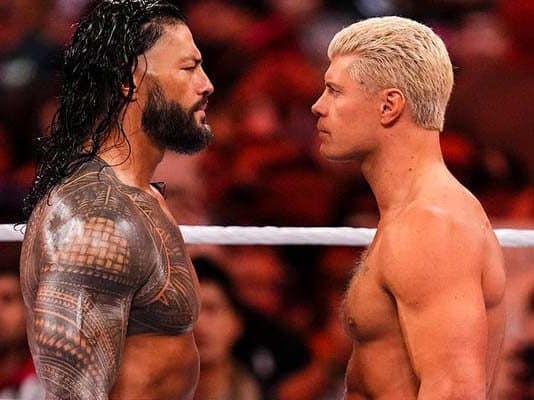
Wrestling is a hard profession, you have to dedicate yourself to it, be in amazing shape, and be all in. For many wrestlers who have always aspired to fame and success in the ring, but often faced parental responsibilities, there is often an inverted shiny ring. Being a parent has a pretty big impact on what happens and doesn’t happen in a wrestler’s career trajectory, as well as their personal life. This is a story about the challenges and the rewards of a wrestling family.
Wrestling and the duality of parenthood
As for professional wrestlers, the road to stardom can take a lot of long hours on the road, hard grueling training schedules, and constant travel to matches. These demands only become more complex when, for example, a wrestler has become a parent. Taking on more bookings or finding a way to earn extra money can create additional pressure for wrestlers to provide for a family, which may force some to do work that doesn’t align with their values or doesn’t leave time for their family.
What’s more, wrestling takes its toll, even physically on parenting. Those who wrestle are often injured and can’t do certain things with their children. It can certainly get in the way, forcing them to feel guilty and frustrated as they try to be there for their own families and still manage the expectations of their careers.
Prenatals: preparing for parenthood
Wrestlers become parents, and when undergoing this transition they often turn to resources and support to get ready for what will follow. Not only are expectant mothers but also fathers who want to be actively involved during and after pregnancy need to get some prenatal education. Both parents can help to understand prenatals and nutrition and prepare for childbirth.
Going to prenatal classes together with other wrestlers usually helps your wrestler connect with his partner deeper and prepare them for the hard work of parenthood. By being proactive, they can help relieve some of the stress about juggling work and family life, which can provide some comfort and feel more prepared to carry out new roles.
Time management: a juggling act
Time management is one of the biggest pain points that wrestlers face as parents. Since demanding schedules mean training, travel, and promotional appearances, it can be hard to find quality time with your family. The vast majority of wrestlers cite the dilemma between what happens in the ring and what they have to do at home.
Some wrestlers have such tight schedules to stay on the right side of this balancing act that they put their family above everything else. It might be something like setting aside special times for family activity or establishing the effort to get home for important marks, for example, birthdays, or school events. By demarcating the boundaries of their “professional commitments” wrestlers gain a new degree of stability for their families.
The role of support systems
Wrestlers are lucky to have good support systems to help them work through the rigors of parenthood in addition to a career. Whether it’s emotional support or helping with child care, spouses, family members, and fellow wrestlers can be a huge support to you.
Over the years, lots of wrestling promotions have realized the value of lending their support to their talent during major life events. Flexible scheduling or accommodations are offered by some organizations to wrestlers expecting (or who have already had) a child. This understanding can help draw a line for wrestlers to cross into parenthood and concentrate on making it in the world and not feeling like a father can bite you wherever you go.
The emotional toll
The feeling of having to juggle parenthood with a professional wrestling career can take its toll on sustaining a nurturing and productive parent-child relationship. The need to live up to the many faces of roles that one has, professional for example, at times leaves wrestlers feeling apprehensions of not being able to deliver fully to one’s particular role.
A fair number of wrestlers such as the wrestlers participating in the Olympic competition have to handle this dilemma more personally. Wrestlers communicating with their families regarding the nature of demands and aspects of wrestling helps ease some misconceptions and promotes the essence of understanding the whole aspect.
Finding balance: the road ahead
Ultimately, finding balance in the face of these challenges requires ongoing effort and adaptability. Wrestlers must continuously reassess their priorities and make conscious choices about how they allocate their time and energy. This process may involve making sacrifices in their careers or seeking opportunities that allow for greater flexibility.
With the increase in consciousness towards the parenting challenges wrestlers have to undergo, it is only fair to expect better facilities for parent wrestlers in the future as there is always room to invest in solutions and projects that aim at making the lives of wrestlers easier.
Conclusion
In general, the effects that being a parent has on a career in grappling are colossal. Trying to balance motherhood, fatherhood, deep fame, and self-realization are burdens that every wrestler faces and continues the eternal quest of finding the balance.












